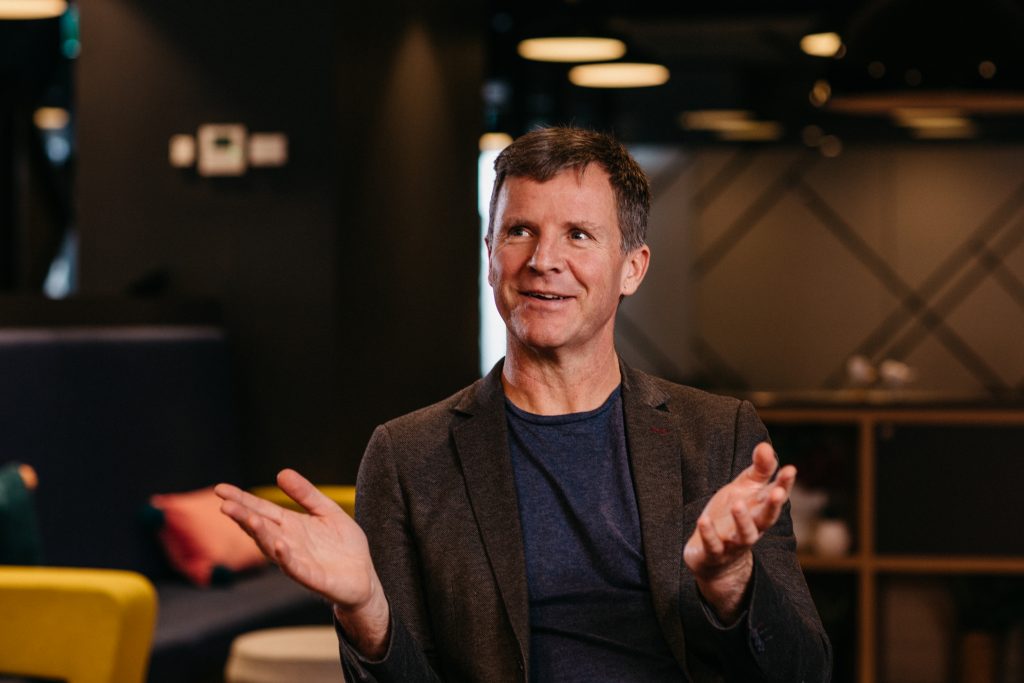The Victorian Disability Worker Commission (VDWC) is now up and running. To learn more, ACD sat down with Commissioner Dan Stubbs. Dan has had a varied career. He’s a recovering lawyer (in his own words) and has worked in public policy, human resources management, law reform and advocacy. We asked Dan more about the VDWC. How it regulates disability workers, how to make a complaint and what the process involves.
ACD: Hi Dan, thanks for sitting down with us today. Firstly, what is the VDWC?
DAN STUBBS: No worries, thanks for having me. The VDWC ultimately helps protect people with disability from abuse and neglect by disability workers. We also promote quality improvement across the disability workforce.
The first thing we do is take complaints from everyday Victorians concerned about the poor conduct of a disability worker. Examples of this might include not giving someone their medication, withholding a meal from them, yelling insults and intimidating them, or physically abusing them.
We take the complaints and then we have people from the VDWC investigate those complaints. The investigators have powers to do things like send warning notices, suspend workers while investigating, and prohibit someone working permanently in the sector.
Then there’s disability worker registration. Here disability workers can register to show they have a certain level of training and experience, prove their identity and more.
ACD: Why is something like the VDWC important for children with disability?
DAN STUBBS: The best protection for children with disability is really good workers who assist them to have the greatest level of participation and the greatest number of people in their lives.
There is a register of disability workers published on our website which means you and your family can look up a disability worker and see their credentials and past work history.
Ultimately, we can and will ban workers if there are issues. That’s obviously an extreme – but there’s a minority of people who should never be disability workers
ACD: How does the VDWC assist families who may want to make a complaint?
DAN STUBBS: Families can call us – even if they’re unsure and just want to check the behaviour of someone. Just contact us – I can’t stress that enough. We know making a phone call isn’t everyone’s cup of tea, so we have an online form on our website, or you can send us a letter. We can also arrange interpreters for you, including Auslan, or you can speak with us face-to-face if you like. We are a free service, so you never have to worry about cost.
ACD: How are families protected when making a complaint?
DAN STUBBS: When you make a complaint, you can remain anonymous if you wish. If you do give us your details we are required by law to protect all of your personal information. Having your details can make it easier to follow up complaints, but again it’s up to you. We will assist you to lodge that complaint if need be. We don’t expect people to be experts.
ACD: What type of disability workers can you help families with?
DAN STUBBS: We take complaints about all professionals who work with your child specifically because of their disability. This includes:
-Support Workers (if they are NDIS funded we have a requirement that we have to notify the NDIS Quality and Safeguards Commission if it’s a matter where they provide service funding, but we will also investigate).
-Therapists like speech therapists or OTs
-Education Support staff at school
You can complain about their standard of work, the knowledge, skill or judgement of the worker, and their capacity to provide services safely.
ACD: What type of disability workers can’t you help families with?
DAN STUBBS: Complaints can only be made if it’s someone who works with a child clearly in relation to their disability. So for example if your child is in a swimming class, the swimming teacher would need to be in a disability focused therapeutic role rather than just a general swimming teacher.
Sometimes families have a problem with an organisation or a service provider – we can take their report about individuals and their supervisors, but not the whole organisation. There are other examples as well – so I recommend families call us if they have concerns.
ACD: Thanks Dan. One final question – what do you want the VDWC to achieve?
DAN STUBBS: There are so many families with children with disability who are isolated and who don’t know their rights – the potential to change that is incredible. I want families to be heard and for them and their children to be able to participate as equal members of society. I think people who are good workers and practitioners want that too and they understand that.
It requires a whole lot of people to contribute, including services and workers. Many people working at the VDWC are people with disability themselves. That’s very important to me both on a structural level and for me personally as a blind man. Having people with lived experience working here may seem like it would be difficult to handle or triggering. But these people are incredibly proud of what they’re doing. There’s an incredible positivity from everyone working here – and I’m fortunate to work with them.
Click here to visit the VDWC website. You will find information about the register of disability workers as well as how to make a complaint.
Read more Uncategorized
